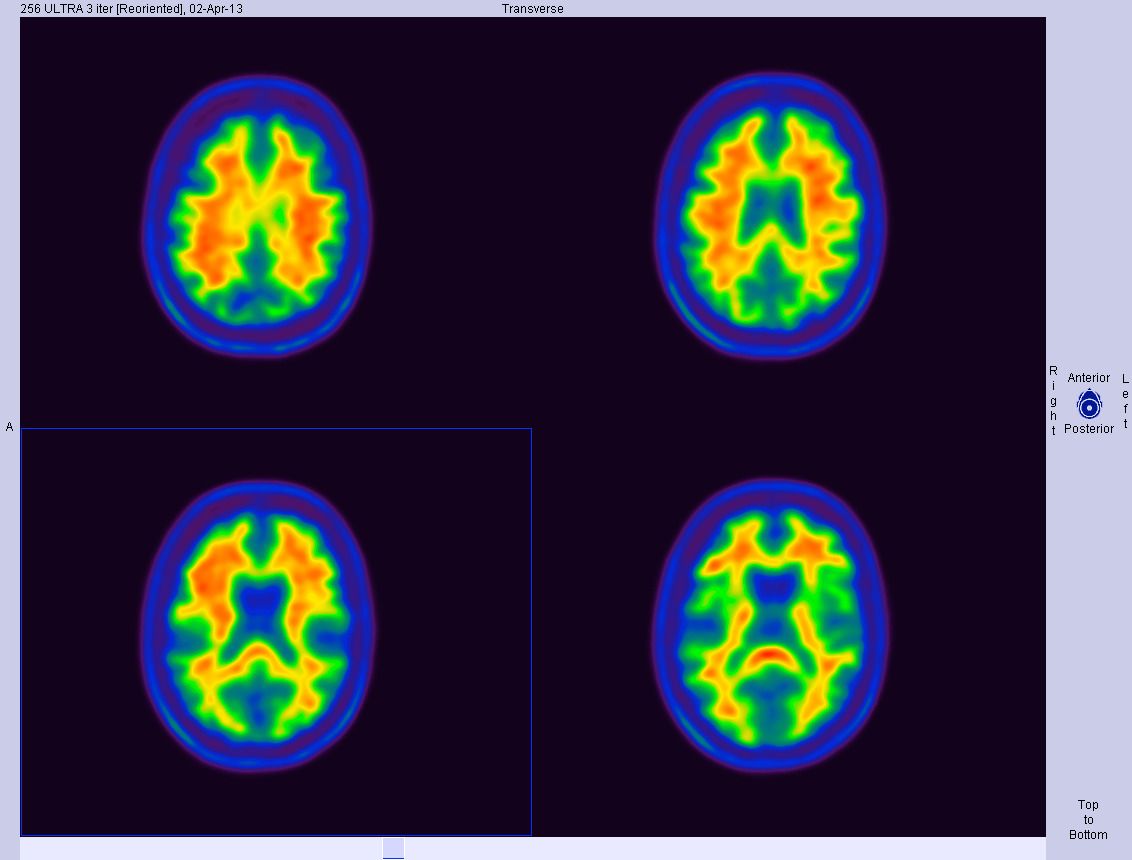Biomedical researchers want to find a treatment for Alzheimer’s disease. This insidious brain disorder afflicts six percent of people over age sixty five. Victims are gradually robbed of their minds, as memory, thinking, and behavior become impaired. Ultimately, bodily functions are compromised, causing death within three to nine years, and no known treatment can stop it. The killer leaves traces behind in the brains of its victims, the most notable of which are abnormal plaques of amyloid proteins.
To find a treatment, researchers study mice with disorders resembling Alzheimer’s. They are pursuing many leads, such as a strategy that enlists the body’s own natural immune defenses to destroy the amyloid proteins in the plaques. The immune system labels its targets for destruction using special proteins called antibodies. Therapeutic antibodies that label amyloid proteins can be supplied directly, or the body can be recruited to make its own, using a vaccine. Researchers have tried these strategies against several amyloid proteins. Unfortunately, none has proved helpful to Alzheimer’s sufferers. Some researchers now question whether amyloid proteins really do cause Alzheimer’s. Others press on, believing they have not yet found the right kind of amyloid to target.
In 2022 a team of researchers based in Europe reported the results for a new candidate Alzheimer’s vaccine in laboratory mice. The vaccine targets an amyloid protein with a hairpin turn in its structure that hadn’t been targeted before. In mice, the vaccine increased brain metabolism of sugar, restored neuronal function, and improved memory. This is a promising and exciting result. The next step will be clinical trials with human patients. The researchers hope they’ve finally found a way to stop the killer.










